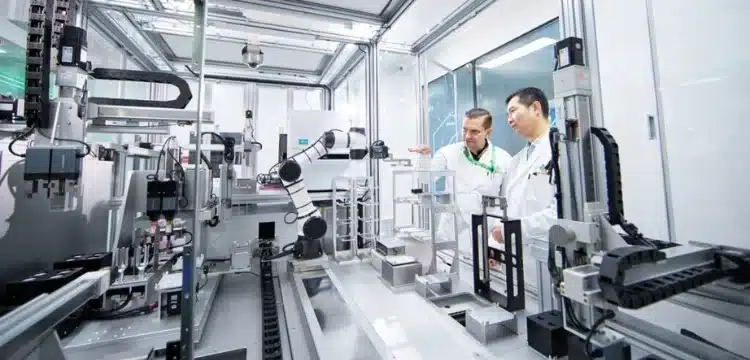[vc_row][vc_column][vc_column_text dp_text_size=”size-4″]The first totally AI-based medicine was developed by Hong Kong-based biotech startup Insilico Medicine as a therapy for the chronic lung condition idiopathic pulmonary fibrosis.
Invention started in the year 2020.
“It is a fully AI-based generated drug to reach human clinical trials and primarily phase II trials with patients,” said Alex Zhavoronkov, CEO of Insilico Medicine.
As is well known, AI has shown its worth in a variety of industries, including health. Therefore, generative AI is being used as much as possible by scientists and researchers.
This week, the first medicine wholly based on artificial intelligence began small-scale clinical trials with humans. The discovery of the medication has been spearheaded by Hong Kong-based startup Insilico Medicine, which has received funding of almost $400 million.
Idiopathic pulmonary fibrosis is a persistent condition that results in lung scarring, and INSO18_055 was created expressly to treat it. The ailment, which affects roughly 100,000 people in the United States at the moment and can quickly result in death if not treated appropriately, is spreading quickly and is challenging to treat medically, according to the National Institute of Health.
Also Read: 12 Hollywood Stars Who Disappeared Completely Behind Makeup For Their Roles
According to Alex Zhavoronkov, founder and CEO of Insilico Medicine, “It is the first fully generative AI drug to reach human clinical trials, specifically Phase II trials with patients.” “Ours is the first drug with a novel AI-discovered target and a novel AI-generated design,” the authors write, even though there are other AI-designed drugs in trials.
Zhavoronko claims that the complete discovery was a difficult phase that started in 2020 with an optimistic goal of developing a “moonshot” drug to address problems with the condition’s current treatments, which primarily concentrate on slowing progression and can produce intolerable side effects.
Choosing IPF had a purpose, according to Zhavoronko, in part because of the consequences the condition has for ageing, but the company also has two other medications that were largely developed using AI that are currently in the trial stage. The first is a Covid-19 medicine that is now undergoing Phase I clinical trials, and the second is a cancer therapy called a “USP 1 inhibitor for the treatment of solid tumours” that has just received FDA approval to begin Phase I clinical trials.
“When this business first started, we were primarily concerned with algorithms — creating the technology that could find and create new molecules,”
Despite the fact that China has been conducting the trials for a while, Hong Kong has chosen to lead. Insilico Medicine also intended to expand the testing phase to 60 participants at 40 locations across China and the U.S. The IPF’s most recent study, however, was a double-masked, randomised, pal ebo-controlled experiment that was conducted in China for 12 weeks. Let’s assume that the current study in both nations is a success. In that event, it will change to a larger cohort study, possibly involving hundreds of people in phase III research.
“We expect results from the current phase II trial next year,” Zhavoronko said. Moreover, he added that “it’s challenging to forecast precise timing for future phases, particularly given that the disease is quite uncommon and patients must meet specified requirements. In a few years, we anticipate that this medication will be marketed and available to people who could benefit from it.[/vc_column_text][/vc_column][/vc_row]











